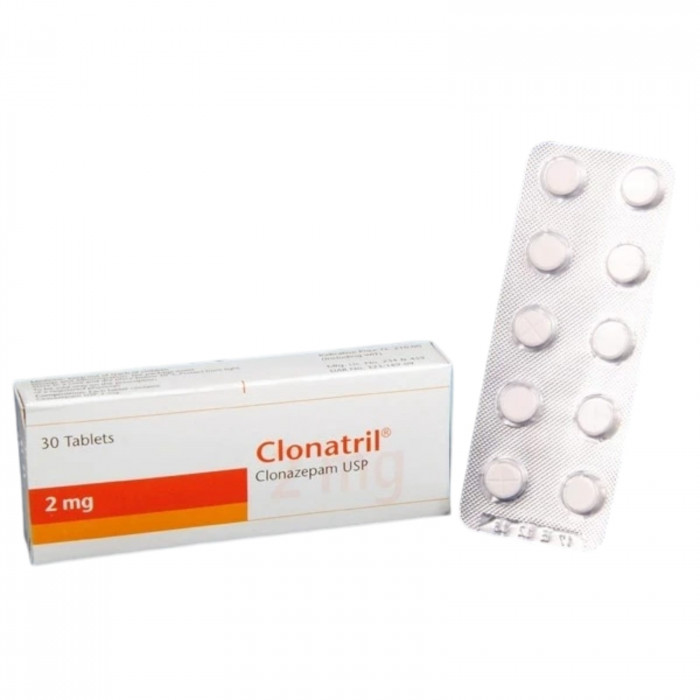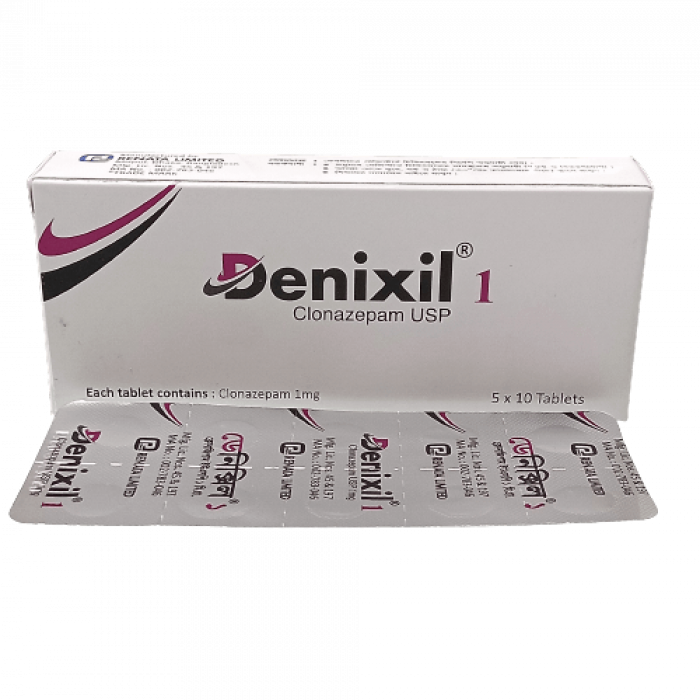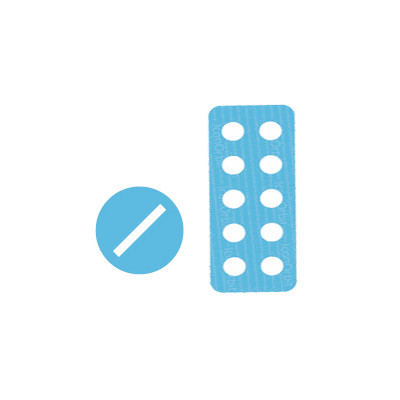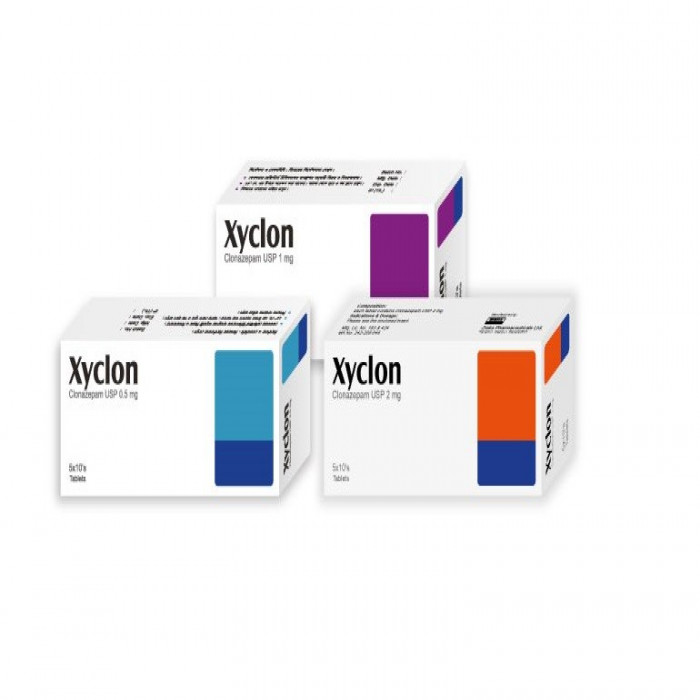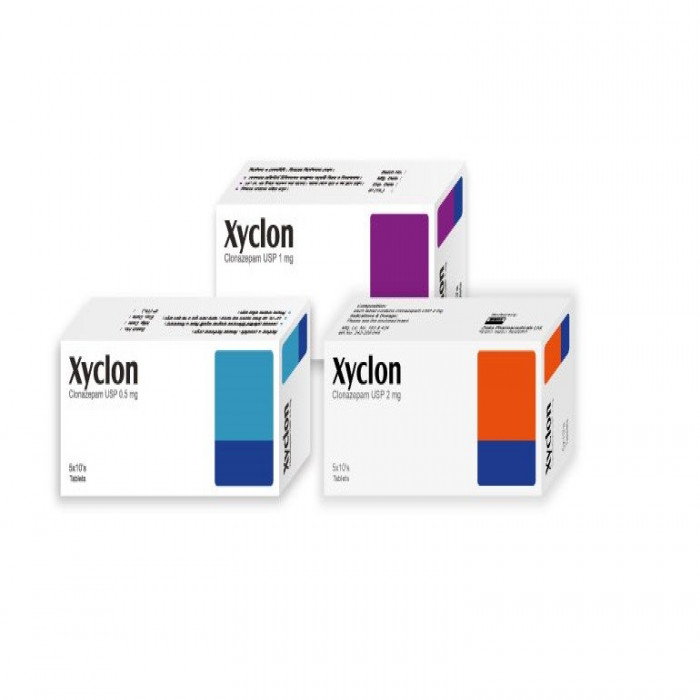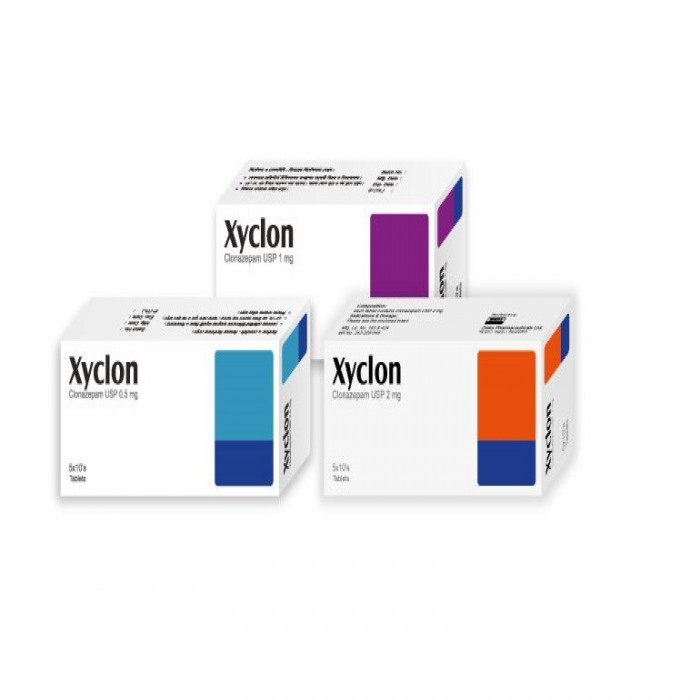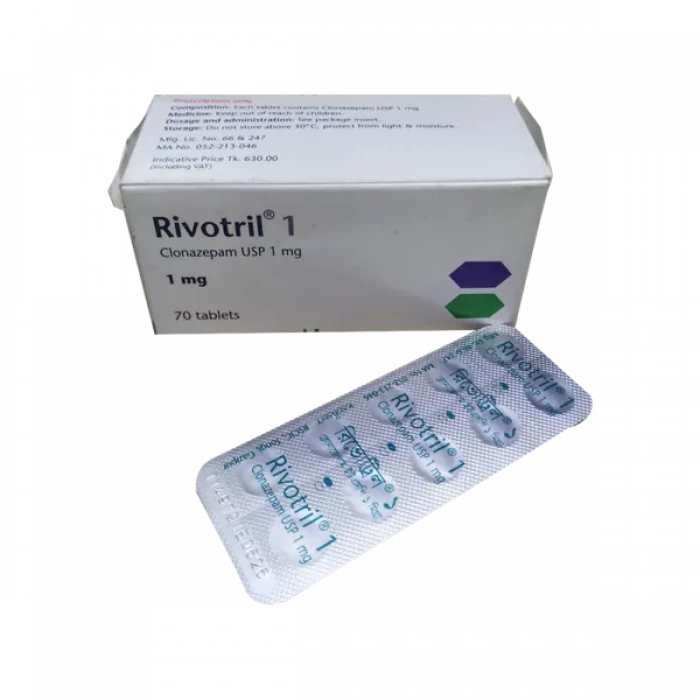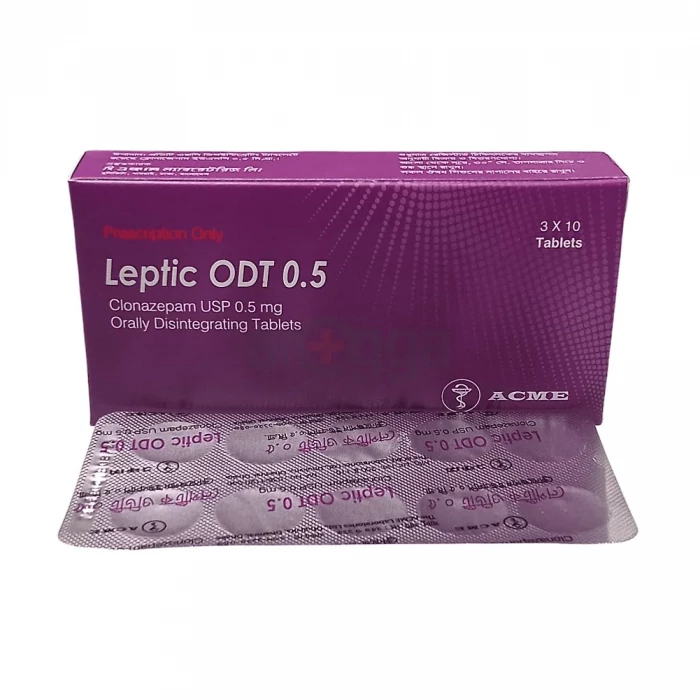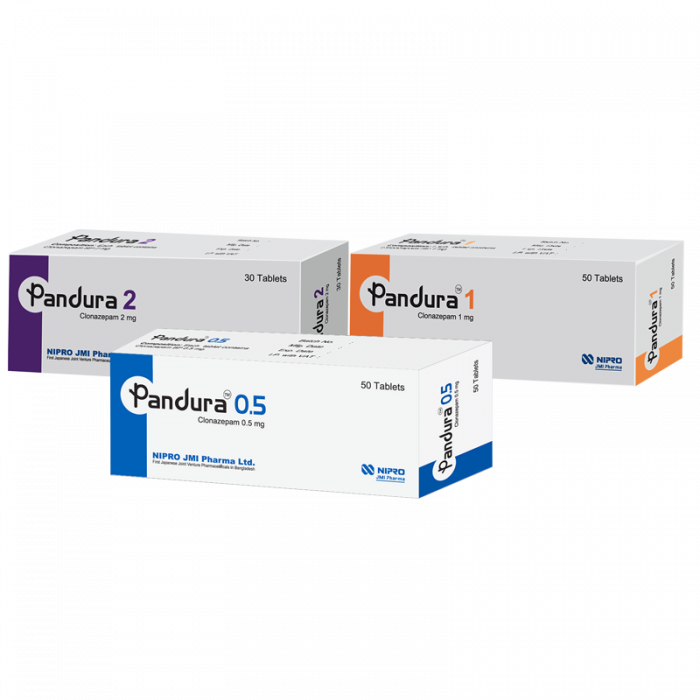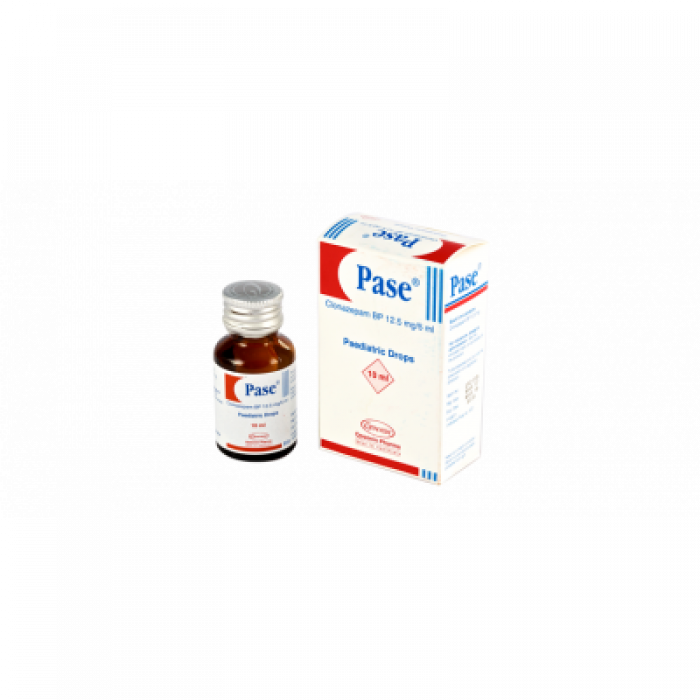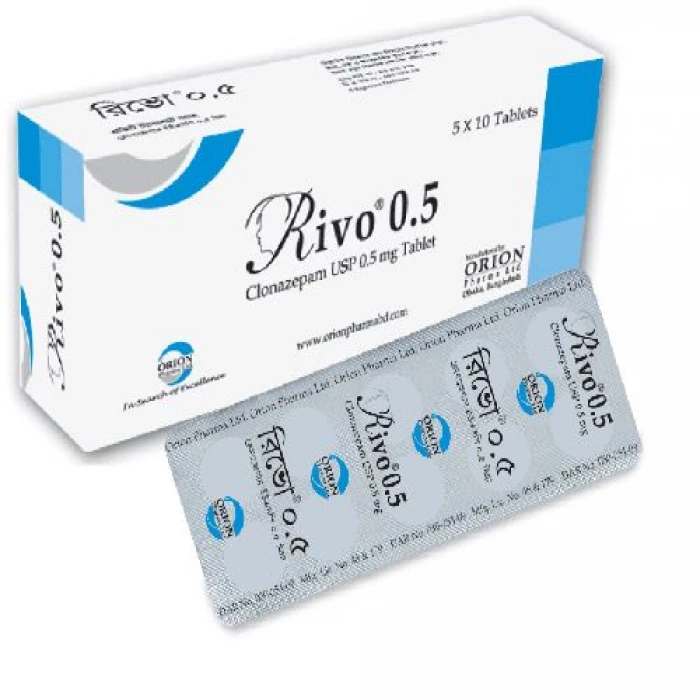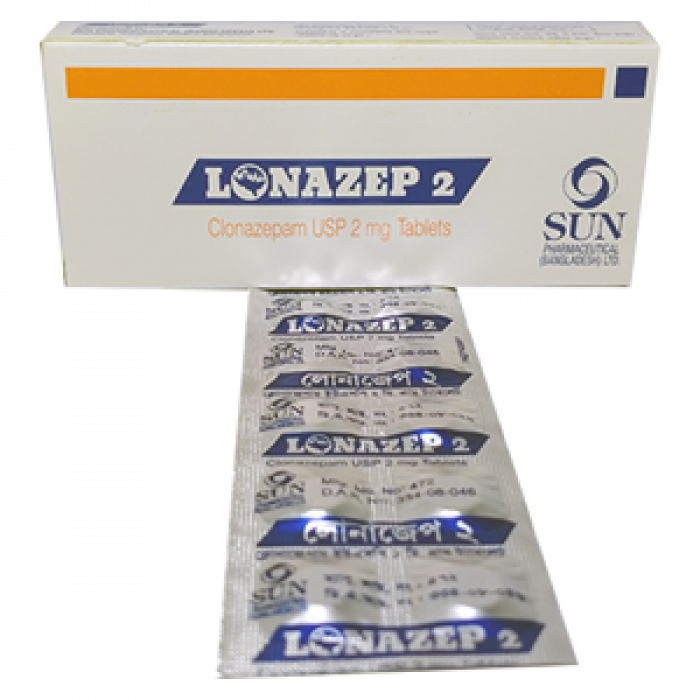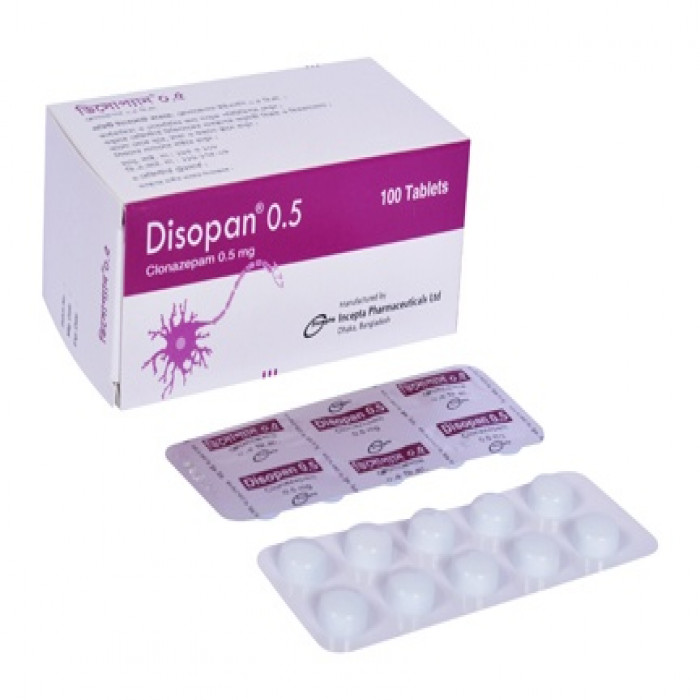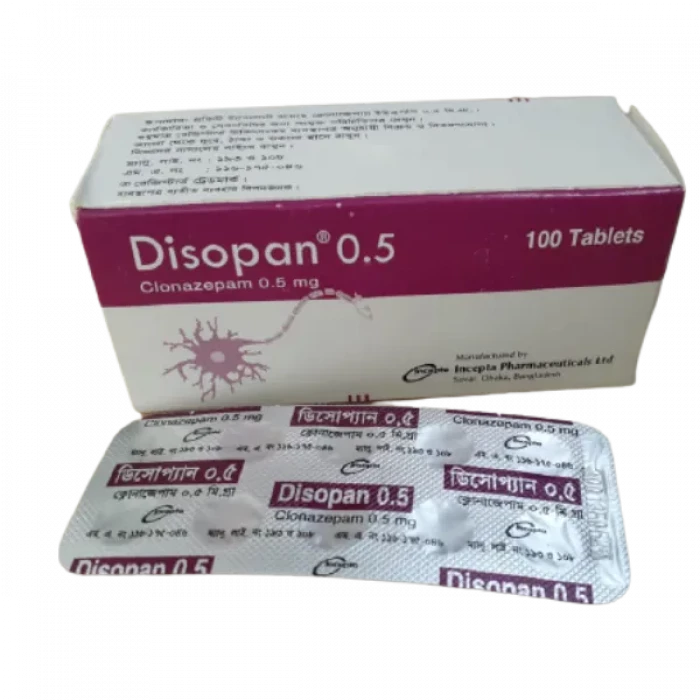
✔ 100% Authentic Product
👁️ Currently Viewing 1648
100% Genuine Products, Guaranteed
Safe & Secure Payments, Always
Fast, Secure & Efficient Delivery
Proper Packaging
 Cash on Delivery - All over Bangladesh
Cash on Delivery - All over Bangladesh Regular Delivery - 12-24 Hours, Dhaka City*
Regular Delivery - 12-24 Hours, Dhaka City* Regular Delivery - 24-48 Hours, All Over Bangladesh*
Regular Delivery - 24-48 Hours, All Over Bangladesh* ফ্রি ডেলিভারিঃ - ৯৯৯ টাকা+ অর্ডারে, ঢাকা
শহরে
ফ্রি ডেলিভারিঃ - ৯৯৯ টাকা+ অর্ডারে, ঢাকা
শহরে ফ্রি ডেলিভারিঃ - ২৯৯৯ টাকা+ অর্ডারে, ঢাকার
বাহিরে
ফ্রি ডেলিভারিঃ - ২৯৯৯ টাকা+ অর্ডারে, ঢাকার
বাহিরে
✅ Description:
Leptic ODT 0.25 is a prescription medicine used to treat epilepsy (seizures), panic and anxiety disorder. It helps to decrease the abnormal and excessive activity of the nerve cells and calms the brain. Leptic ODT 0.25 may be taken with or without food. However, take it at the same time each day as this helps to maintain a consistent level of medicine in the body. Take this medicine in the dose and duration as advised by your doctor as it has a high potential of habit-forming. If you have missed a dose, take it as soon as you remember it and finish the full course of treatment even if you feel better. You should not stop this medicine suddenly without talking to your doctor as it may increase the seizure frequency and can cause nausea, anxiety, flu-like symptoms, and muscle pain. Some common side effects of this medicine include fatigue, depression and impaired coordination. It may also cause dizziness and sleepiness, so do not drive or do anything that requires mental focus until you know how this medicine affects you. It is important to inform your doctor if you develop any unusual changes in mood or depression as this medicine may cause suicidal thoughts.
Uses of Leptic ODT 0.25
Anxiety disorder
Epilepsy/Seizures
Side effects of Leptic ODT 0.25
Common
Depression
Dizziness
Drowsiness
Fatigue
Impaired coordination
How to use Leptic ODT 0.25
Take this medicine in the dose and duration as advised by your doctor. Swallow it as a whole. Do not chew, crush or break it. Leptic ODT 0.25 may be taken with or without food, but it is better to take it at a fixed time.
How Leptic ODT 0.25 works
Leptic ODT 0.25 is a benzodiazepine. It works by increasing the action of a chemical messenger (GABA) which suppresses the abnormal and excessive activity of the nerve cells in the brain.
What if you forget to take Leptic ODT 0.25?
If you miss a dose of Leptic ODT 0.25, take it as soon as possible. However, if it is almost time for your next dose, skip the missed dose and go back to your regular schedule. Do not double the dose.
Quick Tips
- The addiction / habit-forming potential of this medicine is very high. Take it only as per the dose and duration advised by your doctor
- It may cause dizziness. Do not drive or do anything that requires mental focus until you know how this medicine affects you.
- Avoid consuming alcohol as it may increase dizziness and drowsiness.
- Inform your doctor if you are pregnant, planning to conceive or breastfeeding.
- Inform your doctor if you experience worsen anxiety, depression angry, or violent behavior and mania while taking this medicine.
- Do not stop taking medication suddenly without talking to your doctor as that may lead to nausea, anxiety, agitation, flu-like symptoms, sweating, tremor, and confusion.
Indication
Epilepsy, Anxiety disorders, Panic disorder, Status epilepticus, Social phobia, Migraines, Parasomnia, Restless legs syndrome, Rapid eye movement, Behavior disorder, Spasticity, Resistant depression, Trigeminal neuralgia, Nocturnal myoclonus, Post traumatic stress disorder, Insomnia and sleep disturbances, Burning Mouth Syndrome
Administration
May be taken with or without food.
Adult Dose
Oral Epilepsy Adult: Initially, 1 mg given at night for 4 days, gradually increased over 2-4 wk. Maintenance: 4-8 mg/day. Max: 20 mg/day. Elderly: Initially, 0.5 mg at night for 4 days. Panic disorder Adult: Initially, 0.25 mg bid, increased after 3 days up to 1 mg/day. Max: 4 mg/day. Intravenous Emergency management of status epilepticus Adult: 1 mg by slow IV inj over at least 2 min or by infusion, repeated if necessary. Max: 20 mg. Hepatic impairment: Dosage adjustment may be needed.
Child Dose
Oral Epilepsy Child: <10 yr or <30 kg: Initially, 0.01-0.03 mg/kg/day but not to exceed 0.05 mg/kg/day given in 2 or 3 divided doses. May be increased by no more than 0.25-0.5 mg every 3rd day until seizure control is achieved. Maintenance: 0.1-0.2 mg/kg/day divided 3 times daily. Max: 0.2 mg/kg/day. Intravenous Emergency management of status epilepticus Child: 500 mcg by slow IV inj or by infusion.
Contraindication
Hypersensitivity to benzodiazepines, acute pulmonary insufficiency, acute narrow angle glaucoma.
Mode of Action
Clonazepam reduces the nerve transmission in the motor cortex which suppresses the spike and wave discharge in absence seizures. Its mechanism is believed to be related to its ability to enhance the activity of GABA. Clinically, it improves focal epilepsy and generalised seizures.
Precaution
Neonates, chronic pulmonary insufficiency, hepatic/renal dysfunction, porphyria, elderly; pregnancy and lactation. Lactation: Excreted in breast milk; not recommended
Side Effect
>10% Somnolence (37%) 1-10% Abnormal coordination (5-10%),Ataxia (5-10%), Depression (5-10%),Dizziness (5-10%),Fatigue (5-10%),Memory impairment (5-10%),Upper respiratory infection (5-10%),Confusion (1-5%),Dysarthria (1-5%),Rhinitis (1-5%),Coughing (1-5%),Urinary frequency (1-5%),Impotence (1-5%),Decreased libido (1-5%) Frequency Not Defined Increased salivation,Worsening tonic-clonic seizures Potentially Fatal: Salivary or bronchial hypersecretion leading to respiratory problems (children). May produce diminished reflexes or coma. Rarely, blood dyscrasias.
Pregnancy Category Note
Pregnancy There are no adequate and well-controlled studies of Klonopin in pregnant women; available human data on risk of teratogenicity are inconclusive; there is insufficient evidence in humans to assess effect of benzodiazepine exposure during pregnancy on neurodevelopment; administration of benzodiazepines immediately prior to or during childbirth can result in a syndrome of hypothermia, hypotonia, respiratory depression, and difficulty feeding; in addition, infants born to mothers who have taken benzodiazepines during later stages of pregnancy can develop dependence, and subsequently withdrawal, during the postnatal period Data for other benzodiazepines suggest possibility of adverse developmental effects (long-term effects on neurobehavioral and immunological function) in animals following prenatal exposure to benzodiazepines Lactation Effects on breastfed infant and on milk production are unknown; developmental and health benefits of breastfeeding should be considered along with mother's clinical need for therapy and any potential adverse effects on breastfed infant from drug or from underlying maternal condition
Interaction
Additive depressant effect w/ TCAs, MAOIs, sedative and hypnotics, barbiturates, anxiolytics, antipsychotics, opiate agonists. May increase serum phenytoin levels.
⚠️Disclaimer:
At ePharma, we’re committed to providing accurate and accessible health information. However, all content is intended for informational purposes only and should not replace medical advice from a qualified physician. Please consult your healthcare provider for personalized guidance. We aim to support, not substitute, the doctor-patient relationship.





